Science’s Objectivity Conundrum
Christine Bachrach
“The admiration of science among the general public and the authority science enjoys in public life stems to a large extent from the view that science is objective or at least more objective than other modes of inquiry.”
– The Stanford Encyclopedia of Philosophy, “Scientific Objectivity”
“There is no such thing as objectivity. We are all just interpreting signals from the universe and trying to make sense of them.”
― Bones, “The Doctor in the Photo”
For centuries, philosophers and scientists have debated the meaning, the attainability, and the desirability of objectivity in science. Even now, the debate is far from settled. In this post, we explore various viewpoints about objectivity and then tie the ideas to population health today.
The one thing most scholars agree on is that the idea of scientific objectivity is an important element that gives science a voice of authority in society—what makes it a process that produces unbiased and reliable knowledge that people can and perhaps even should use in their lives. But scholars don’t agree on what objectivity means or how to achieve it.
Seeking a Workable Definition of Objectivity
One concept of objective science is that it reveals truths that exist in the world, independent of any human perspective. This definition is an excellent ideal, but it’s unworkable in practice. We can never know for sure what independent truth is—and therefore adjudicate which one of two or more competing claims best matches it. Identifying an independent truth is even more elusive in population health science: Our “truths” are often contingent on social conditions and meanings which vary over time and place.
Another idea put forth by philosophers is that science can be objective because it uses “a well combined use of reasoning and observation.” Although we can define science as something that uses a “systematic methodology based on evidence,” there is no single methodology that scientists use, so tying objectivity to method doesn’t work, either.
A third approach has been to define objectivity as the absence of undesirable influences. According to a current definition,
“Scientific objectivity … expresses the idea that scientific claims, methods, results—and scientists themselves—are not, or should not be, influenced by particular perspectives, value judgments, community bias or personal interests, to name a few relevant factors.”
For a long time, mainstream thought held that while scientists might be influenced by their values to advance and pursue a particular theory, they were, in principle, capable of gathering evidence and testing hypotheses without being influenced by values. However, as we saw in the last Blog post, scientists have so many degrees of freedom in carrying out these steps, this assertion is also problematic.
A more common approach is to hold science to a Value Free Ideal that is imperfectly attainable, but nevertheless critically important to the goal of producing reliable knowledge. This argues that scientists should strive to minimize the influence of personal values on scientific reasoning, e.g., in gathering evidence and assessing/accepting scientific theories. In short, although scientists can’t be objective the more steps they take – either theoretically or empirically – to try to be objective, the better.
Objectivity as a Community Project
Recognizing that all knowledge is socially situated, feminist scholars and some recent philosophers turn the issue of values and science on its head. Sandra Harding and others argue that scientists should let their values drive how they do their research as long as they and others recognize and consider the effects of their positionality (perspective) on what they produce. Because this transparent approach puts researchers’ standpoints out in the open, this creates a stronger kind of objectivity than when researchers try to stay neutral or fail to own up to their values. Philosopher Paul Feyerabend makes a similar case, rejecting the idea that scientists should avoid personal bias in their work.
But these scholars don’t stop there. If they had, science would devolve into a cacophony of assertions without any means of reaching consensus about what we know. Instead, they shifted the locus of objectivity in science from the individual to the scientific community. Science can be more or less objective depending on the structures, culture, and diversity of the communities that produce it. This dependence on communal practices echoes the ideas of Kuhn, who saw skepticism and debate within a scientific community as a critical step in the shift to new paradigms.
The ability of a scientific community to create a body of knowledge that transcends the individual perspectives of its members depends on three essential elements.
- Institutional structures such as peer review, discussants at conferences, and other processes that provide ample opportunities for other scientists to criticize work and challenge conclusions.
- A set of shared norms. These can encourage principles such as grounding criticisms in science rather than personal preferences, being receptive and responsive to criticism and new ideas, and respecting the intellectual authority of each community member. They can also establish guardrails for the process of adjudicating debates.
- A diversity of perspectives in the scientific community. Diversity along demographic characteristics like age, race, gender and class is important, but largely because it can help to facilitate bringing different perspectives into play. What’s most needed to reduce the risk of groupthink is a range of perspectives in terms of theoretical commitments, methodological preferences, and personal values. To quote Helen Longino, “When… background assumptions are shared by all members of a community, they acquire an invisibility that renders them unavailable for criticism.” In other words, without diversity, you create an echo chamber.
Implications and Remaining Questions
Perhaps what unifies scholars who have tackled the conundrum of objectivity is that all recognize the need for practices that inspire trust in science and reliance on science as an institution. The centuries-long debate leaves us with two important questions to consider:
At the individual level, are there still aspects of the Value Free Ideal worth pursuing?
- Do scientists have an ethical responsibility to adhere to the best scientific practices, become aware of their own biases, and seek, as well as possible, to address the effects of those biases in all stages of research?
At the collective level, can we act in ways that move population health science beyond the sum of the many essential—but inevitably imperfect—contributions we make as individuals?
- By broadening the perspectives we bring into our collective work and fostering the open give and take of ideas, can we make that work stronger and more reliable as a resource for understanding the world and its problems? This might make science much more complex, difficult and slower, but also more rewarding and more likely to make an impact in moving the field forward within and across disciplines.
The Role of IAPHS
If admiration of science is, at least in part, a function of its perceived objectivity, do we need to address the objectivity conundrum in the context of population health science? How should we do this as individuals, and what role can IAPHS play as a scientific organization?
Please comment! Members of a diverse interdisciplinary organization such as ours are likely to hold different views on the objectivity conundrum. Do you have answers to the “Remaining Questions” posed above? (Log in to comment)
If you’re inspired, you can enrich the conversation by posting your thoughts as a separate post.
If you’d like to read more….
Naomi Oreskes, Why Trust Science, Princeton University Press (2019).
Reiss, Julian and Jan Sprenger, “Scientific Objectivity“, The Stanford Encyclopedia of Philosophy (Winter 2020 Edition), Edward N. Zalta (ed.)
About the Authors
Christine Bachrach is Senior Advisor to IAPHS and the organizer of this series. She accepts full responsibility for its content as a representation of the authors’ thoughts and opinions and not necessarily the opinion of IAPHS as an organization. Many individuals, listed below, have also volunteered to contribute their ideas and suggestions. Special thanks are owed to the following people who provided substantive suggestions on this blog post: Nicholas King, Sanne Magnan, Jarron Saint Onge.
Project advisors: Yukiko Asada, Caryn Bell, Erika Blacksher, Marino Bruce, Merlin Chowkwanyun, Cynthia Colen, Jen Cruz, Jenn Dowd, Kaori Fujishiro, Taylor Hargrove, Kathie Harris, Mark Hayward, Jennifer Karas Montez, Nicholas King, Lindsey Leininger, Sanne Magnan, Jarron Saint Onge, Kat Theall, Alex Tsai, and Anna Zajacova.

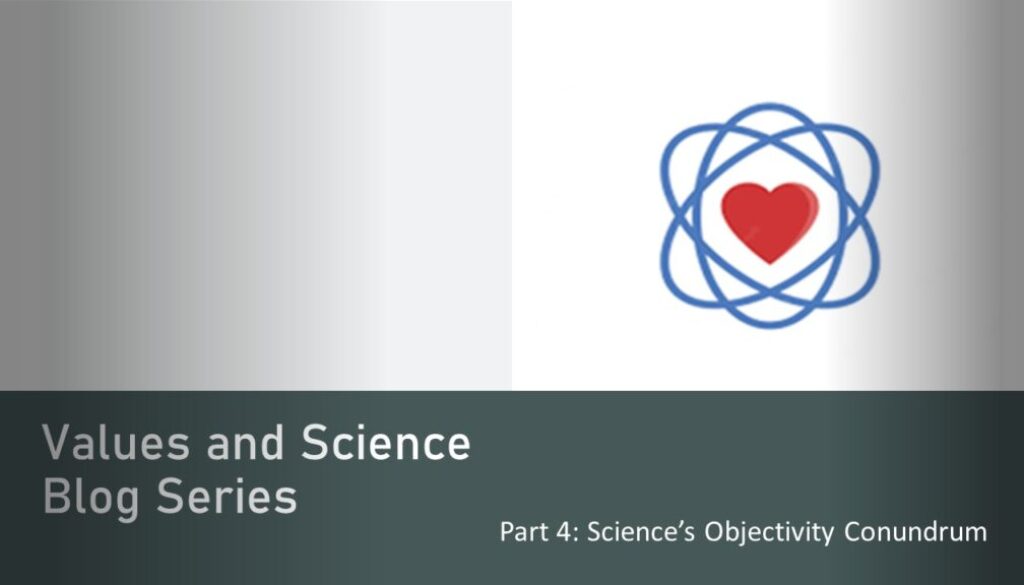
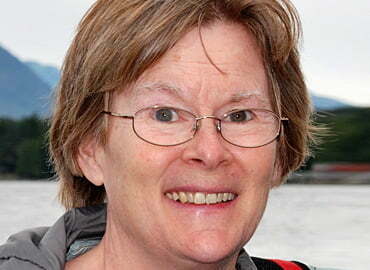
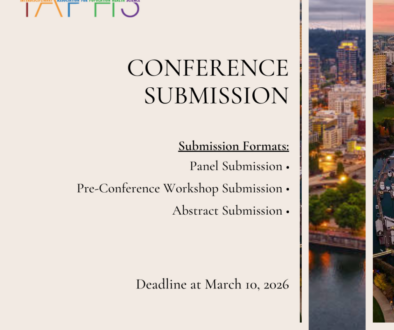
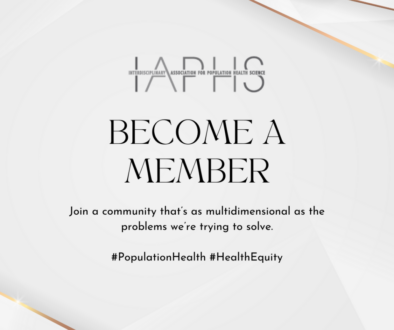
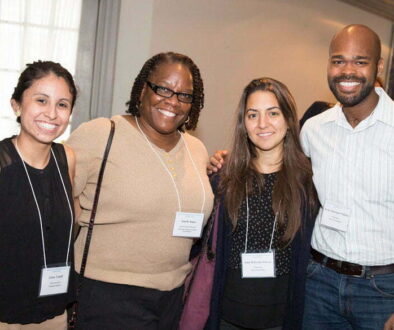
All comments will be reviewed and posted if substantive and of general interest to IAPHS readers.